TI's SDK for the MSPM0 family has a set of examples. They are all targeting one of their LaunchPad dev kits. In this post, I'm porting one to the EasyL1105.
The example that I'll use is an FFT analysis design that's written for the LP-MSPM0C1106 launchpad. All activities happen in ccstudio. But you can also use standalone SysConfig to translate this to the MSPM0L1105 controller on the EasyL1105 board.
| I selected the FFT example because it uses the standard ARM CMSIS DSP library. A test to see if the generic ARM components and APIs can be used on this controller. |
Find an example
The easiest way to find examples is from TI Resource Explorer. Either online, or from ccsstudio:
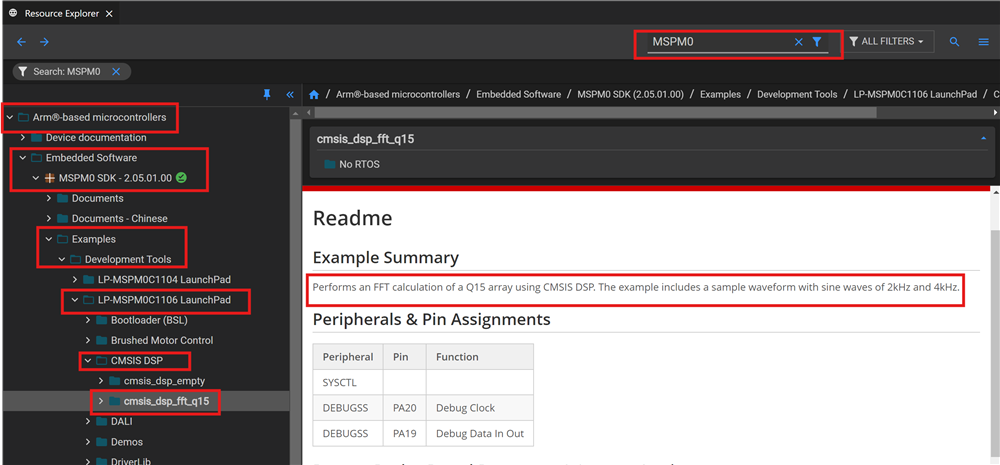
I used the ccstudio New Project wizard to create my own project. If you do this with a different toolset: all resources are available:
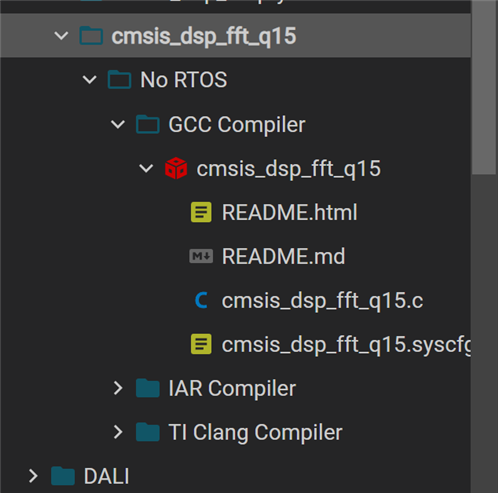
Import the project
The New project wizard does all the copying and VSCode project setup:
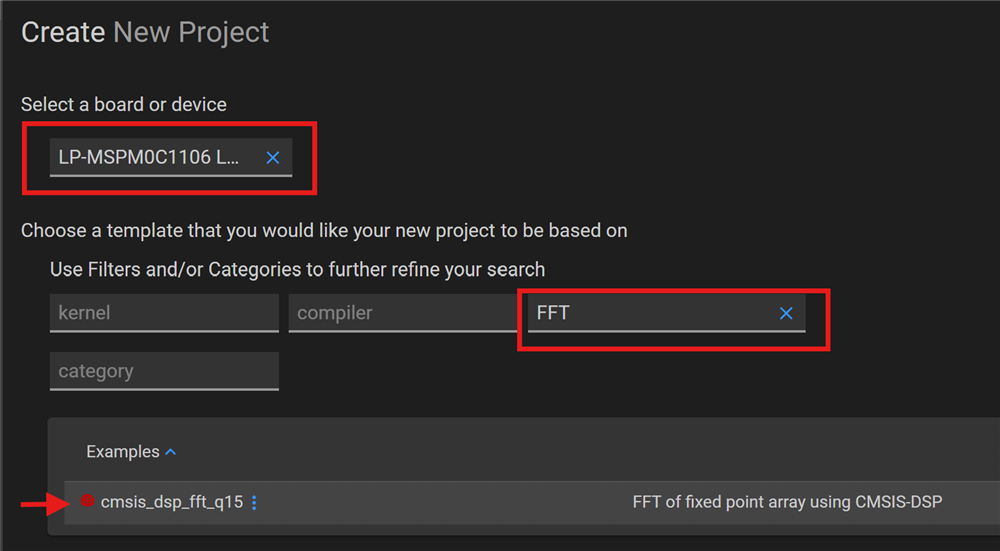
When you create this project, it will not be for our controller. Ignore that for the moment.

You 'll see that, after creation, the project name contains to the LaunchPad name. Right click on the generated project, and give it a good name

Port to EasyL1105
In ccstudio, the SysConfig screen opens automatically. When you do this with SysConfig standalone, load the .syscfg file.
Press the SWITCH button to port it to our controller.
- device: MSPM0L1105
- package: VSSOP-28(DGS28)
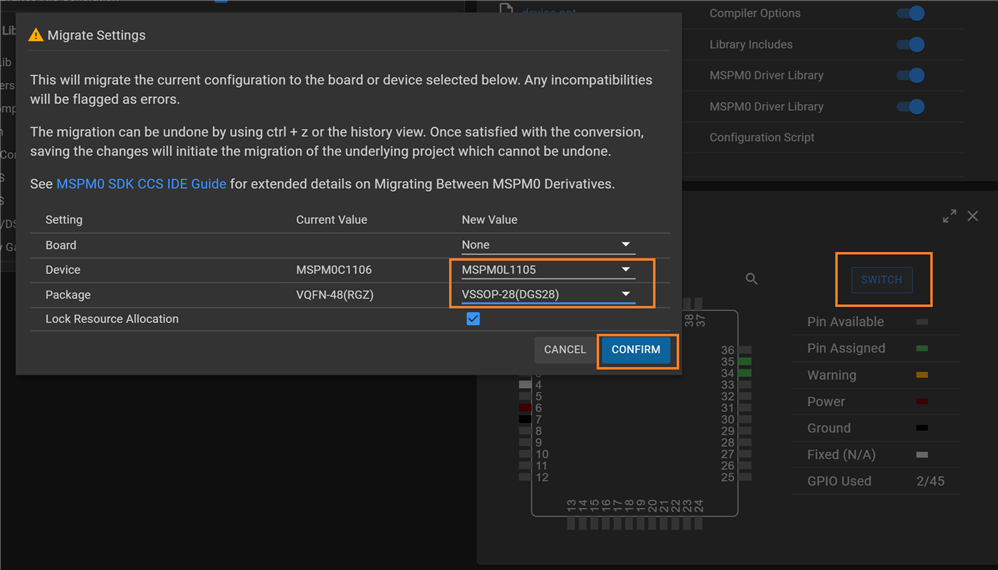
Almost finished. This is now ready for build and test
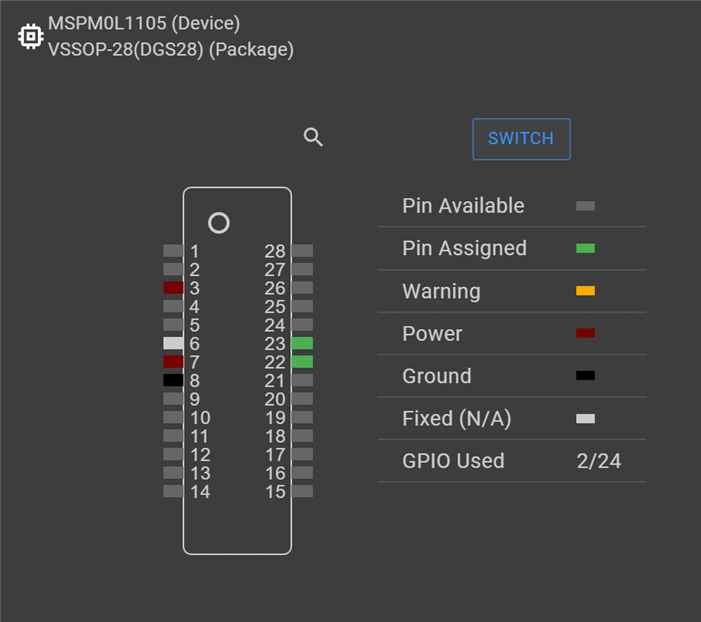
This example doesn't do anything visible from the outside. It's supposed to be run from a debugger. Before doing that, I changed the optimisation setting to 0.
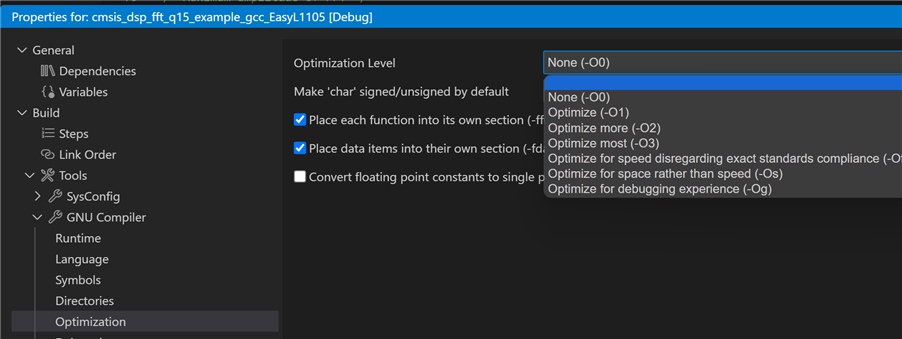
I halted execution when the FFT buckets were generated from an example waveform:
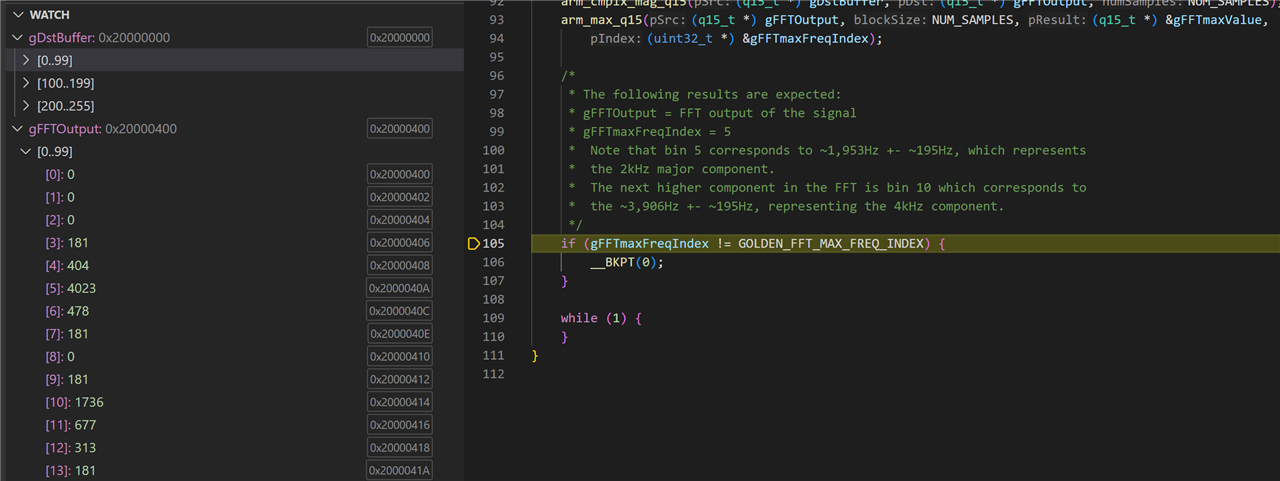
There are a lot of good examples in the SDK. When selecting one, check if the MSPM0L1105 has comparable resources.
Have fun!

